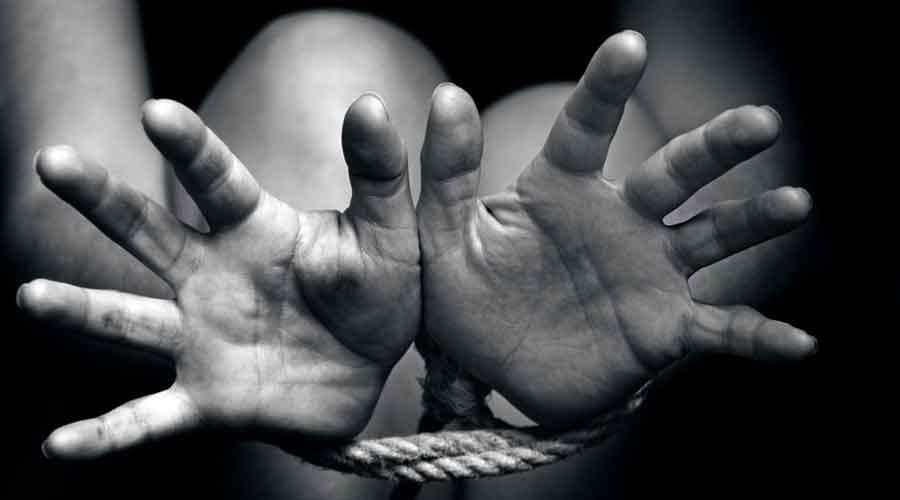A man in South 24-Parganas district has been convicted of trafficking two Bangladeshi women and forcing them into prostitution.
A fast-track court of the additional district and sessions judge in Baruipur convicted Safiullah Khan, alias Raju, last week and handed him a 10-year jail term.
Three other co-accused in the case were acquitted for a lack of evidence.
Conviction under Section 370 of the Indian Penal Code, which deals with human trafficking, is “rare”, said police, lawyers and activists. In February this year, The Telegraph reported on the dismal rate of convictions in trafficking cases.
The two women, who are sisters and from Khulna in Bangladesh, were lured with the promise of stitching jobs in a garment manufacturing unit, lawyers said.
Khan was arrested during a police raid on a house in Baruipur, on the southern fringes of Kolkata, on September 19, 2019. The raid followed a tip-off and the police had set up a trap with men posing as “customers”.
“Khan’s presence at the house from where the two women were rescued helped in securing the conviction under Section 370. Decoy customers also helped us in establishing the exchange of money,” said Pushpa, the superintendent of the Baruipur police district.
“The girls were used for commercial sexual exploitation. One of them came to Baruipur via Delhi and Bihar. Between Bangladesh and Baruipur, they were sold more than once,” said Kakali Ghosh Kundu, inspector-in-charge of Baruipur police station, who had led the raid.
South 24-Parganas and North 24-Parganas districts have long been trafficking hotbeds. But police officers and lawyers who have been handling trafficking cases for years said convictions under Section 370 were not common.
“You need to establish a money trail to secure a conviction for trafficking. Financial transactions have shifted to online mode, making our job harder. Not every woman found in a raid is a minor. In the absence of cash transactions, preparing a watertight case is very difficult as consensual sex between two adults is not an offence,” said a police officer.
The two survivors who were living at a shelter home of Sanlaap, an NGO, have recently been repatriated to Bangladesh.
